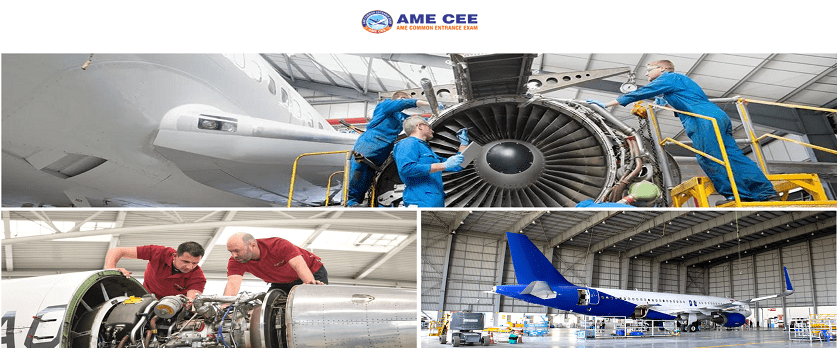In the dynamic world of aviation, the role of Aircraft Maintenance Engineers (AMEs) is paramount to ensure the safety and airworthiness of aircraft. Aspiring professionals often ponder whether Aircraft Maintenance Engineering is a good career choice. Let’s delve into the details to understand why AME is not just a good career but a rewarding and indispensable one.
Career Stability and Industry Demand
Aircraft Maintenance Engineering offers unparalleled job security. The aviation industry’s constant growth and the ever-increasing global demand for air travel contribute to a continuous need for skilled AMEs. Airlines, maintenance organizations, and regulatory bodies seek qualified professionals to ensure the safe operation of aircraft.
Attractive Compensation Packages
AME professionals command competitive salaries, reflecting the critical nature of their work. Salaries can increase with experience, specialization, and the complexity of the aircraft systems they handle. Working for major airlines or in high-demand areas enhances the earning potential for AMEs.
International Prospects
One of the significant advantages of pursuing a career in Aircraft Maintenance Engineering is its global relevance. AMEs with internationally recognized certifications find opportunities not only in their home country but also in the international aviation arena. This global mobility adds a layer of versatility to the career.
Practical Expertise and Specialized Focus
AMEs are involved in hands-on work, inspecting, troubleshooting, and repairing aircraft components. The specialized nature of the job ensures that AMEs develop a deep understanding of intricate aircraft systems, making them experts in their field. This hands-on experience is not only professionally enriching but also personally satisfying.
Swift Career Launch
Compared to traditional engineering programs, AME programs are relatively shorter, typically taking around 2-3 years to complete. This allows individuals to enter the workforce sooner, kickstarting their careers in aviation maintenance without an extensive educational timeline.
Ever-Evolving Expertise and Adaptive Skills
The aviation industry is dynamic, with constant advancements in technology. AMEs need to stay updated on the latest aircraft systems, regulations, and maintenance practices. This requirement for continuous learning fosters a culture of adaptability, keeping professionals at the forefront of industry developments.
Ensuring Aviation Safety Excellence
AMEs play a crucial role in aviation safety. Their meticulous work ensures that aircraft are in optimal condition, adhering to stringent safety standards. The sense of responsibility and contribution to passenger safety can be deeply fulfilling for individuals in this profession.
Tailoring Expertise
Specialization Paths in AME
Within the field of Aircraft Maintenance Engineering, professionals can choose to specialize in specific areas such as mechanical, avionics, or even focus on particular types of aircraft. This allows for career customization based on personal interests and aptitudes.
Soaring High in Aircraft Maintenance Engineering
In conclusion, Aircraft Maintenance Engineering emerges not only as a good career choice but as a dynamic and vital profession within the aviation industry. The combination of job security, competitive salaries, global opportunities, hands-on work, and a sense of contribution to aviation safety makes AME a compelling and fulfilling career path. As the aviation landscape continues to evolve, the demand for skilled AMEs is set to soar, presenting a world of possibilities for those who choose to unlock the heights in this exciting field.
Frequently Asked Questions About AME Career and Scope
Q1. Is job security high in Aircraft Maintenance Engineering?
Answer: Yes, job security in AME is robust. The continuous growth of the aviation industry ensures a consistent demand for skilled AMEs, contributing to long-term career stability.
Q2.Are salaries in Aircraft Maintenance Engineering competitive?
Answer: Absolutely. AMEs command competitive salaries, reflecting the critical nature of their work. With experience and specialization, professionals can enjoy attractive compensation packages.
Q3.What global opportunities are available for AME professionals?
Answer: AMEs with recognized certifications have international relevance, opening doors to opportunities across the globe. The universal nature of aviation ensures a broad spectrum of global prospects.
Q4.How hands-on is the work in Aircraft Maintenance Engineering?
Answer: AME involves highly hands-on work, including maintenance, inspection, and repair of aircraft systems. It is a practical profession, appealing to individuals who enjoy tangible and immediate results.
Q5.How quickly can one enter the workforce after completing an AME program?
Answer: Entry into the workforce is swift. AME programs are relatively shorter, typically taking 2-3 years, allowing individuals to gain practical experience and establish their careers sooner.
Q6.What role does continuous learning play in Aircraft Maintenance Engineering?
Answer: Continuous learning is crucial in AME due to the dynamic nature of the aviation industry. Staying updated on the latest technologies and regulations fosters adaptability and ongoing professional development.
Q7.How does Aircraft Maintenance Engineering contribute to aviation safety?
Answer: AMEs play a crucial role in ensuring aviation safety. Their meticulous work in maintaining and inspecting aircraft systems contributes directly to the overall safety of air travel.
To become an aircraft maintenance engineer you may could join AME engineering through AME COMMON ENTRANCE EXAM (AME CEE) this examination you may join AME engineering approved by DGCA, EASA or UGC.


